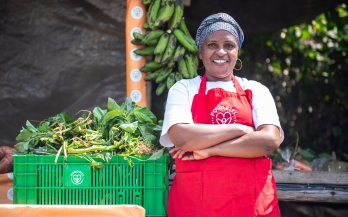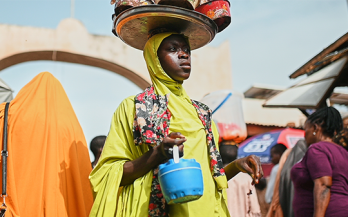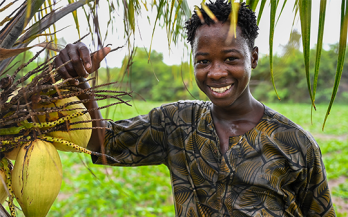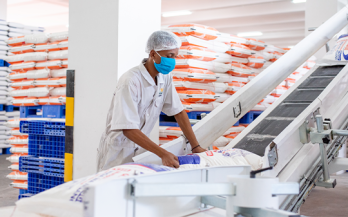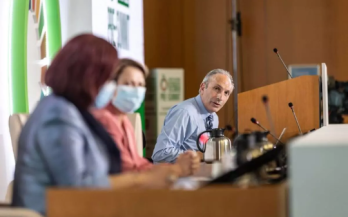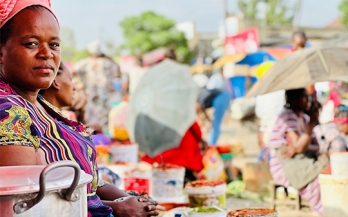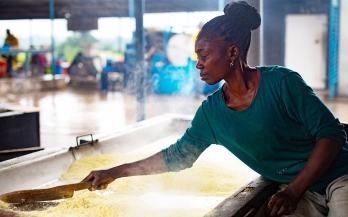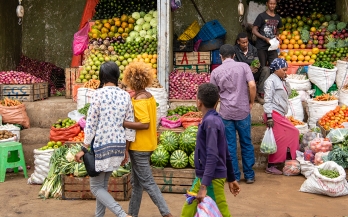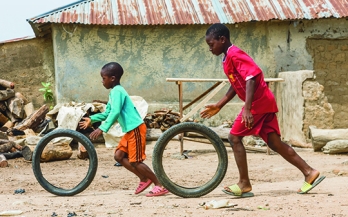As the world marks International Women’s Day 2025, we celebrate the resilience, ingenuity, and contribution of women in driving economic growth and improving household nutrition. In Kenya, one of the most visible yet often overlooked players in this space is the mama mboga (the last-mile vegetable vendor) who ensures families have access to fresh and affordable produce daily.
The intersection of climate change and food security took center stage at the recent Nigeria Climate Change Forum, where experts gathered to discuss sustainable solutions for ensuring food and nutrition security amidst growing climate challenges.
The benefits of trade are often viewed in economic terms, but its human impact — on malnutrition in particular — cannot be ignored. Malnutrition stunts development, weakens immunity, and deteriorates bone and muscle health.
Food system transformation requires long-term commitment, but we live in a world of short-term political cycles and unforeseen crises that can deter momentum and reset policy priorities. Given that political economy dynamics can stymie efforts to implement food systems transformation agendas, GAIN has partnered with the International Food Policy Research Institute (IFPRI) to develop a Political Economy Decision Toolkit that identifies possible bottlenecks ex-ante and utilizes different sets of strategies to overcome them. The Toolkit was informed by discussions with GAIN’s policy advisors across Africa and Asia and revolves around six main domains that can be applied to either a narrow food policy issue, such as expanding school meals programmes, or to a broader topic, such as implementing national food system pathways.
Recently I was on panel chaired by the UN Deputy Secretary General, Amina Mohamed, where I was asked three questions about the UN’s “Stocktaking Moment” two years after the UN Food Systems Summit of 2021 (UNFSS). Here are my answers to the questions.
Read our eleventh story in the series on The Food Crisis: What's Happening, a collection of work on the current events and the impact communities are seeing on a global scale.
The Food Crisis is affecting everyone socially, economically and nutritionally. Stella Nordhagen, Genet Gebremedhin, and Smret Hagos write about the pressure market vendors in Hawassa, Ethiopia are facing.
Read our tenth story in the series on The Food Crisis: What's Happening, a collection of work on the current events and the impact communities are seeing on a global scale.
The Food Crisis is affecting everyone socially, economically and nutritionally. Ty Beal, Stella Nordhagen and Gina Kennedy recently attended the International Congress of Nutrition, here they write on the discourse needed to tackle the crisis
Read our ninth story in the series on The Food Crisis: What's Happening, a collection of work on the current events and the impact communities are seeing on a global scale. The Food Crisis is affecting everyone socially, economically and nutritionally. Michael Ojo and Joyce Akpata discuss newly published dire statistics on Nigeria's poverty index, and how urgent action is needed.
Read our eighth story in the series on The Food Crisis: What's Happening, a collection of work on the current events and the impact communities are seeing on a global scale. The Food Crisis is affecting everyone socially, economically and nutritionally. Aster Zewdie, Senior Policy Advisor at GAIN Ethiopia, discusses the wide reaching ripple effect the economic crisis will have on Ethiopia, affecting the most vulnerable in society, and what actions need immediate attention.
Read our seventh story in the series on The Food Crisis: What's Happening, a collection of work on the current events and the impact communities are seeing on a global scale. The Food Crisis is affecting everyone socially, economically and nutritionally. Joyce Akpata, Head of Policy and Advocacy at GAIN Nigeria, discuss the wide reaching ripple effect the economic crisis will have on Nigeria, affecting the most vulnerable in society, and what actions need immediate attention.
